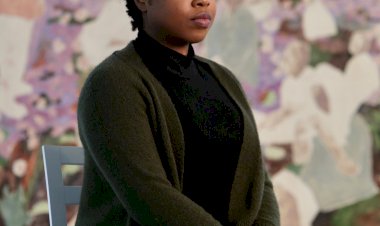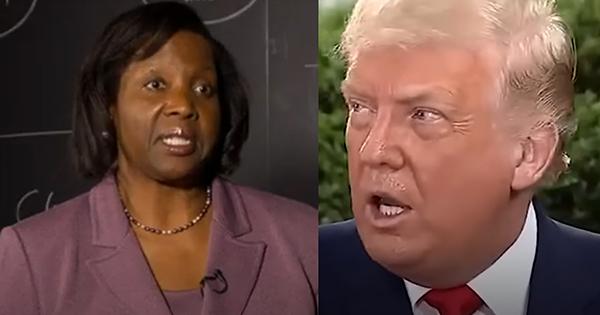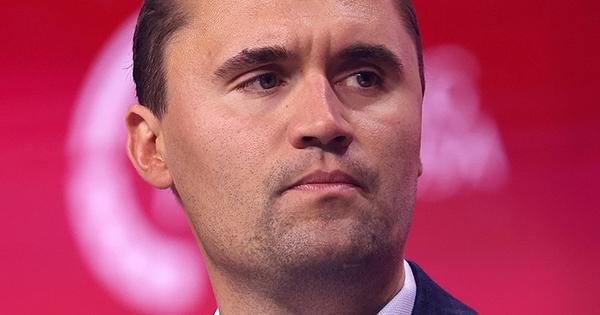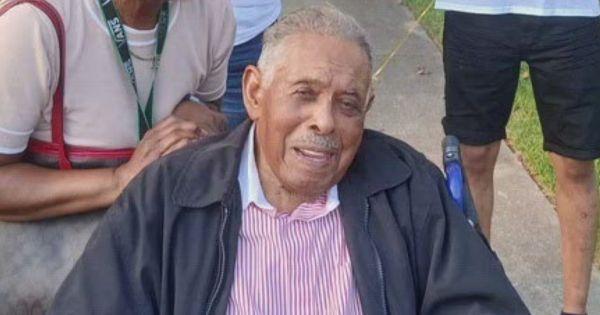African History Students Speak Out
African History

Have you heard of the University of Chichester’s decision to suspend recruitment to (effectively close) the master’s degree by Research (MRes) in the History of Africa and the African Diaspora? By doing so, Professor Hakim Adi who created and delivers the course will be made redundant. This decision will mean the loss of supervision for all existing MRes students, and for ten or more PhD students who rely on Professor Adi for the supervision of their research work.
The decision by the University is especially deplorable given the pressing need today for postgraduate research into the history of the African continent and African politics. The University must explain the rationale for the closure, as the MRes appears to be very successful and may have produced the largest cohort of ‘Black British’ postgraduate history students ever in Britain, the majority going on to pursue PhD research.
A campaign has been set up via Change.org, with a petition urging the University of Chichester to reverse this unjust and discriminatory decision and the students have commenced legal proceedings against the University. Please see the link below in order to sign the petition:
In addition, the students have found it necessary to fundraise to:
University.
And they would be grateful if you would stand in solidarity with them and Professor Adi by signing and sharing the petition and in addition, making a financial contribution to the campaign. Your donation will have an impact on the University of Chichester, allowing them to know, that we, the students are serious in our endeavour to challenge their decision legally. It would also convey the message that African history matters. Any contribution, no matter the size, will be greatly appreciated. To support our campaign, please visit our fundraising page at:
https://www.gofundme.com/f/save-the-mres-defence-fund
If you would like further information about the campaign, please visit History Matters online:
https://www.historymattersonline
Some of the students that reached out to Black News at their total dissolution with the Universities actions include many who have signed names below, detailing their university status and the titles of their current research.
Emmanuel Amevor: MRes – “How did the work of I. T. A. Wallace-Johnson and the West Africa Youth League formed in 1935 influence the decolonisation process and the fight against imperialism from its formation to the Manchester Pan-African Congress in 1945.”
Told us, after meeting Professor Adi on a course while at cordwainers he was encouraged and inspired by his understanding of the African Diaspora history so much that when he had the opportunity to take up the course it was Professor Adi's guidance that made a big impact on his decision.
Leanard Phillip: MRes – “What were CLR James’s key contributions to the British Black Power struggle in the United Kingdom during his latter life, 1962-1989.”
Told us, of his love for history and the important roll history plays to him. Whether referring to British History or indeed that of the World's History, which Professor Adi often demonstrated always has been linked to the History of the Africa, "one can't be told without the other he say's " while vigorously and enthusiastically highlighting events such as the 1945 Pan-African Congress meeting in Manchester and the leaders' Kwame Nkrumah Jomo Kenyatta Dr hastings Banda attendance and subsequent Independence campaigns that spread not just throughout Africa but the world.
Esther Stanford-Xosei: PhD - "Maatubuntuman in Ubuntudunia: Our Sankofa Planet Repairs Goal in the UK for Reparations and the Decolonial Re-Making of the World from Below."
Told us, that she cant see why Professor Adi's employment was even being judged solely by the Universities Mres policy. As the course for her was always about the PhD. She went on to say how much Professor Adi had worked with her during her supervision and how at this late stage of her PhD how it has come as a major disappointment and inconvenience. Which will ultimately affect the outcome of her PhD in many ways.
Marlene Worrel: PHD – “Black Presence in Medieval Britain – Using the Lens of Europe.”
Who we thank for initiating contact by reaching out to us initially to tell us of the petition to save the MRes and go fund me campaign started by the students told us;
Far too often history has been written from one point of view, and very rarely encompasses the contribution of the Black diaspora to the many areas of history. This is why me and other historians have taken this route, to progress our knowledge, but more importantly to offer the balance that is crucially needed"
Professor Adi, the first person of African descent to become a professor of history in the UK, described Chichester University’s decision to make him redundant as "horrifying" and has vowed to keep fighting. In recent weeks a campaign to save the Mres African Diaspora course, taught by Adi has attracted tens of thousands of supporters from all over the world as well as the UK, indicative of both the need and demand for the course. The Mres course had engaged students from all over the world and produced several PHD candidates. Some suggest the University’s justification for terminating student recruitment on financial grounds, and with it Adi’s post, doesn’t add up. They claim the course was not sufficiently advertised, and that the university failed in its duty and responsibility to shore up interest. Adi described the University’s suggestion that he ‘crowdfund’ his own post as insulting. “Trying to present everything in terms of money shows no regard for the history I teach and the students I’m trying to reach.
“It shows no regard for what’s going on nationally, in terms of students of African and Caribbean heritage being excluded and alienated from the study of history. The way they’ve treated Mres and the history of Africa and the African diaspora generally, shows contempt for this history. It’s absolutely horrifying and makes me angry” For many the University’s conduct, treatment of its students, and course, paints a contradictory picture of an institution claiming to value diversity.
“What they are doing is breaching every principle of equality and inclusivity” he said.
“It reflects a University which in some ways is representative of higher education in general, paying lip service to the idea of equality, widening participation, and encouraging a diverse workforce. It’s just meaningless empty words.”
Despite the University’s decision to axe the course,
The avalanche of support the campaign is receiving continues to be a motivating force in keeping up momentum and efforts to safeguard the future of Adi, the Mres course and ultimately, precious African histories neglected by mainstream academia.
“The tremendous support that my students have given, the loyalty and hard work to organise the campaign is a wonderful thing to see”.said Adi
He went on to add: “All the people who have donated, or sent messages, who’ve offered their services legal or otherwise shows how people value the course.
“One realises that whatever the problems are of Chichester University, and the way it views the world, that everybody outside views things in a different way and value the history. We’ve had a lot of support from students that are not my students and post graduate students, and it’s very inspiring. I can’t say thank you enough for the support from all over the world.”
A spokesperson for the University of Chichester said: “The University of Chichester routinely reviews its portfolio of degree programmes. Recently the University suspended eight postgraduate programmes, including the online MRes programme which the University has supported since its launch six years ago.
This statement by the University in its entirety regarding the total numbers, has been refuted by the students. As they have asked for evidence of the numbers, but thus far the University has been unable to provide them with any proof.
The University spokesperson went on to say, the gap between income and expenditure means other areas would have to subsidise this programme’s costs, to the detriment of those other programmes and their students. This would not be sustainable, and the University has had to come to the difficult decision to suspend a number of programmes in this category, of which the MRes is one.
We will continue to support all students affected to complete and achieve their qualifications, including a small number of related doctoral students. Consultation with students is being offered on both a 1-2-1 and a group basis, ensuring that they can be updated on their studies in the forthcoming academic year now that the confidential discussions with the member(s) of staff affected have concluded.
Through our normal consultation process we always offer the opportunity for staff to propose alternative solutions to ensure the viability of a course that has been suspended. Throughout the consultation, there was regular engagement with staff affected, but no viable counterproposals or solutions were found.”
For Black News, Africa is a vital region with some of the fastest growing economies in the world; it is a continent of thousands of languages and cultures, unparalleled eco-diversity, and over a billion vibrant and innovative people.
The relevance of African issues is apparent in our everyday lives. We use African products, exports, or mineral resources, sometimes unknowingly -- and are unaware of the consequences for people and the environment. By the year 2050, at least 25% of the world's population will be in Africa. Now more than ever is the time to incorporate long-ignored African knowledge into our worldview.
Studying African history and politics gives us a deeper understanding of world history and especially of current events. For example, the profits the United Kindom & United States reaped from the trans-Atlantic slave trade jumpstarted our industrial revolution and laid the economic foundations of this nation. Right now, African immigrants are establishing more communities in Europe & America, enriching both European & American culture, which puts the study of African issues and cultures at our front doorstep. African Studies are important to students who want to understand their neighbors and themselves. You become a better-informed global citizen when you study Africa.
And only recently Adi has been shortlisted for a prestigious history writing prize. Adi has made the shortlist for the Wolfson history prize for his 2022 book, African and Caribbean People in Britain: A History. The winner of the prize, announced in November, will receive £50,000.
“It’s a wonderful, wonderful feeling especially in the current circumstances,”
After the master’s degree Adi founded, which focused on the history of Africa and the African diaspora, was cancelled last week after a review by the university’s curriculum planning committee. Baring in mind the professor had worked at the institution for over a decade.
“I think it shows that the decision that the University of Chichester made was extremely misguided, shortsighted; some people have called it an act of educational vandalism,” said Adi. “It was always inexplicable, but it’s even more – it just flies in the face of everything that people need and people want. So I think being shortlisted for the prize shows that certainly Wolfson think that this kind of history is important, think that my work is important.”
More than 12,000 people signed a petition to reverse the university’s decisions, and Labour MP Bell Ribeiro-Addy tabled an early day motion in parliament expressing disappointment at the announcement. Adi said that the public response was “amazing” and that support came in from “all over the world – literally every continent”.
Adi’s shortlisted book “tells the history of Britain from the earliest times up until 2020, Black Lives Matter”, explained the author. “But it tells it from the perspective of those of African and Caribbean heritage. All the latest research shows that Africans have been here for at least 2,000 years, and unfortunately that important history has very often been neglected. It’s still neglected in schools and universities, and in the media more generally. So the book tries to redress that imbalance.”
Wolfson judges described Adi’s book as “timely”, “comprehensive” and possessing an “epic narrative”. Other shortlisted titles include The World the Plague Made: The Black Death and the Rise of Europe by James Belich, The Perils of Interpreting: The Extraordinary Lives of Two Translators between Qing China and the British Empire by Henrietta Harrison, Vagabonds: Life on the Streets of Nineteenth Century London by Oskar Jensen, Resistance: The Underground War in Europe 1939-1945 by Halik Kochanski and Portable Magic: A History of Books and their Readers by Emma Smith. All shortlisted authors will receive £5,000 each.
Adi said his shortlisting was “an award not just for me, but for my students, for everybody who thinks that history matters, and particularly the history of Africa and the African diaspora. It’s come at a wonderful moment, and I look forward to celebrating.
In Black News's opinion its imperative for the University to reach out properly to the students now legal questions have been asked.
And for the it to try and achieve an environment which is positive, engaging and beneficial for everyone and that its essential for its community and curriculum that they are not just seen to be inclusive and reflective of the diversity in which they operate in, but are also affective in this endevour.
And to encompass everyone within your community the history and culture has to be inclusive, equality has to be embedded and diversity has to be sought, recognised, valued and celebrated across all your endeavours - in your learning, teaching, research and enterprise, within the student experience and also the staff working environment.
For us at Black News this boils down to the students unbridled reserve to fight this tooth and nail for what should be the Universities own core values of....
- Equality
- Diversity
- Inclusivity
- Intersectionality























